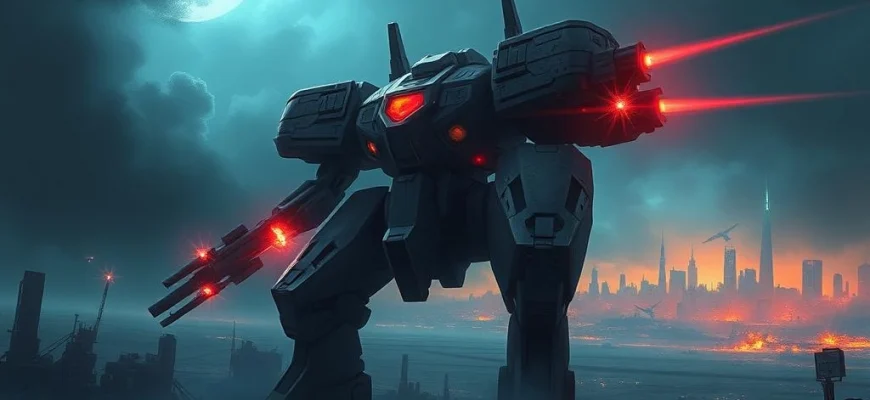If you loved the mind-bending, emotionally intense world of Evangelion: 3.0 You Can (Not) Redo (2012), you're in for a treat. This article explores 10 movies and shows that capture similar themes of existential dread, mecha battles, and psychological depth. Whether you're craving more dystopian sci-fi or complex character arcs, these picks will satisfy your appetite for thought-provoking storytelling.
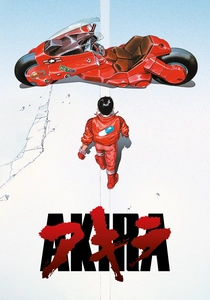
Akira (1988)
Description: A landmark in anime history, combining explosive action with deep psychological and societal themes. Its dystopian setting and exploration of human evolution and power resonate with similar existential questions.
Fact: The film's production involved over 160,000 animation cels, a record at the time. Its iconic motorcycle slide was achieved through rotoscoping, a technique rarely used in anime.
 Watch Now
Watch Now 
Neon Genesis Evangelion (1995)
Description: A psychological and philosophical exploration of human existence, featuring mecha battles and deep character introspection. The series delves into themes of identity, trauma, and existential dread, wrapped in a visually striking and often surreal presentation.
Fact: The series was initially conceived as a more straightforward mecha anime but evolved into a deeply personal project for its creator, reflecting his struggles with depression. The iconic 'Instrumentality' concept was inspired by Freudian psychology and existential philosophy.
 Watch Now
Watch Now 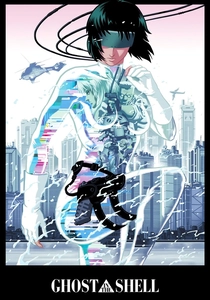
Ghost in the Shell (1995)
Description: A cyberpunk masterpiece that questions the nature of consciousness and humanity in a technologically advanced world. Its blend of action, philosophy, and stunning visuals creates a thought-provoking experience.
Fact: The film's animation was groundbreaking for its time, blending traditional cel animation with early CGI. Its influence can be seen in numerous later works, including The Matrix.
 Watch Now
Watch Now 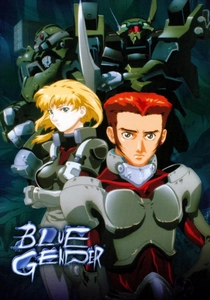
Blue Gender (1999)
Description: A gritty mecha series set in a post-apocalyptic world overrun by monstrous creatures. It combines intense action with deep character development and existential themes.
Fact: The series was notable for its realistic portrayal of mecha combat, with the machines often suffering damage and requiring maintenance. Its ending was controversial for its abrupt shift in tone.
 Watch Now
Watch Now 
Paranoia Agent (2004)
Description: A surreal and psychological exploration of societal pressures and collective trauma, told through interconnected stories. Its unconventional narrative and striking visuals create a haunting atmosphere.
Fact: The series was originally planned as a single-episode special but expanded into a full series due to its creator's growing ambitions. Each episode features a radically different visual style.
 Watch Now
Watch Now 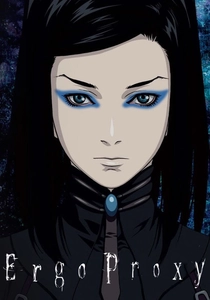
Ergo Proxy (2006)
Description: A dark, philosophical series set in a post-apocalyptic world, exploring themes of identity, free will, and what it means to be human. Its atmospheric storytelling and complex narrative structure create a deeply immersive experience.
Fact: The series incorporates numerous references to philosophy, literature, and art, including direct quotes from Descartes and nods to classic paintings like 'The Scream.'
 Watch Now
Watch Now 
Psycho-Pass (2012)
Description: A dystopian thriller that examines the nature of justice, free will, and societal control through a high-tech lens. Its psychological depth and moral ambiguity make it a compelling watch.
Fact: The series' Sibyl System was inspired by real-world predictive policing technologies. Its creator originally envisioned it as a live-action project before adapting it into an anime.
 Watch Now
Watch Now 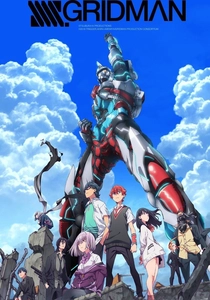
SSSS.Gridman (2018)
Description: A modern take on classic mecha tropes, blending action with psychological depth and meta-commentary on storytelling. Its visual style and character-driven narrative create a unique experience.
Fact: The series is a reboot of the 1990s live-action tokusatsu series 'Gridman the Hyper Agent.' It features numerous Easter eggs and references to the original show.
 Watch Now
Watch Now 
Promare (2019)
Description: A visually stunning and hyper-stylized action film that explores themes of discrimination, rebellion, and human connection. Its bold aesthetic and emotional intensity make it stand out.
Fact: The film's unique art style was achieved through a combination of traditional animation and 3D CGI, creating a dynamic and fluid look. It was the first original anime film from Studio Trigger.
 Watch Now
Watch Now 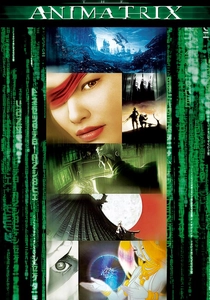
The Animatrix (2003)
Description: A collection of short films that expand the lore of a dystopian cyberpunk world, blending action with philosophical questions about reality and humanity. Its varied visual styles and deep themes create a rich tapestry.
Fact: The project involved several renowned anime directors, each bringing their unique style to different segments. One short, 'Beyond,' was inspired by Japanese ghost stories and urban legends.
 Watch Now
Watch Now 
